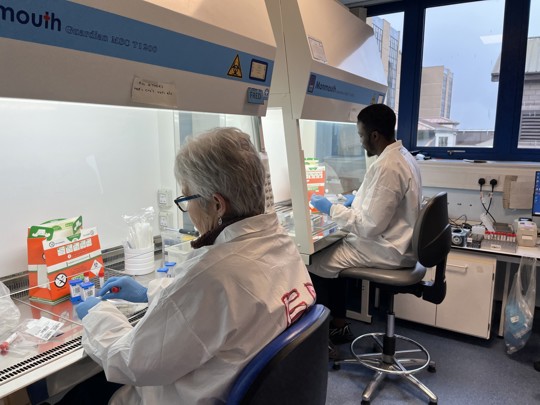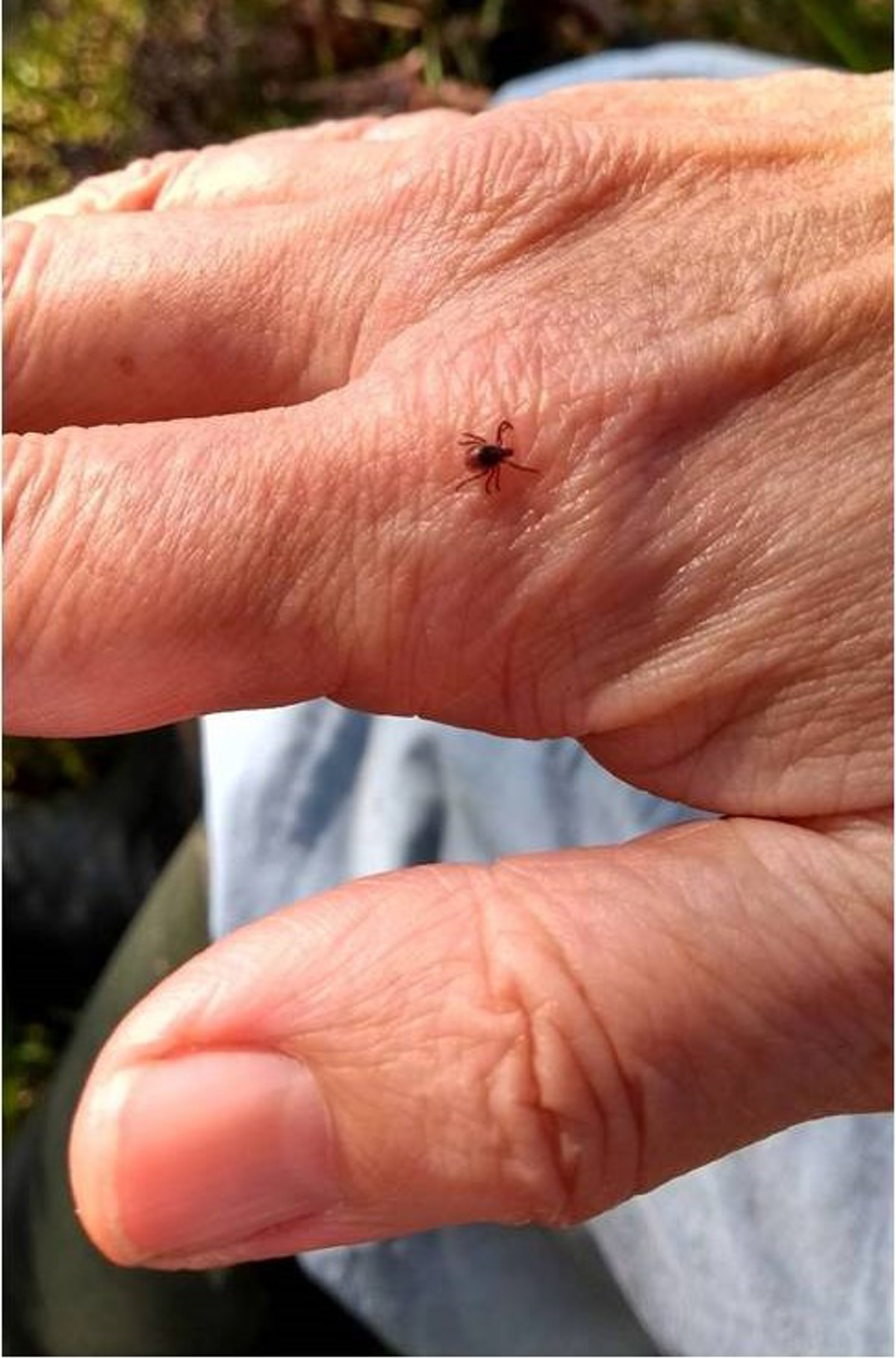Lyme disease and tick-borne infections
On this page
Scottish Lyme Disease and Tick-borne infections Reference Laboratory (SLDTRL).
The aim of the SLDTRL (established April 2018) is to provide comprehensive and standardised testing for Lyme disease and other tick-borne infections, provide technical and clinical advice to healthcare staff and to collaborate with Public Health Scotland Health (PHS) to provide epidemiological data on Lyme disease in Scotland.

Important: Contact

Scottish Microbiology Reference Laboratories
- phone 01463 704 206
available 09:00 to 17:00 Monday to Friday - email nhsh.smirl@nhs.scot
Please note: this generic email address should not be used for urgent clinical or non-routine enquiries - please telephone the laboratory instead.
We cannot offer clinical advice directly to patients.
Important: Scottish Microbiology Reference Laboratories

The Scottish Microbiology Reference Laboratories are a group of specialist laboratories that are centrally funded by National Services Scotland.
NHS Highland hosts two of these laboratories at Raigmore Hospital, Inverness (Zone 3):
- The Scottish Lyme Disease and Tick-borne infections Reference Laboratory (SLDTRL)
- The Scottish Toxoplasma Reference Laboratory (STRL).
The services are free for Scottish patients.
Key personnel
- Clinical Scientist (director): Dr Sally Mavin
- Clinical Leads: Dr Mairi Cullen and Dr Alex Cochrane
- Microbiology Service Manager: Dr Joanne Smullen
About Lyme disease and related conditions
Lyme borreliosis (also known as Lyme disease) is caused by bacteria from the Borrelia burgdorferi sensu lato complex. In the UK the bacteria is transmitted to humans through the bite of infected, hard bodied, Ixodes ricinus ticks.
Photo: Erythema migrans (EM) rash, characteristic of Lyme disease.
Borrelia miyamotoi disease, which presents as a relapsing fever, can also be transmitted by Ixodes ricinus ticks. It is an emerging disease in Europe caused by B. miyamotoi bacteria, which are from the relapsing fever group of borrelia, genetically distinct from those that cause Lyme disease.
Human granulocytic anaplasmosis (HGA), also an acute febrile illness transmitted by Ixodid ticks, is an infection caused by the bacterium Anaplasma phagocytophilum.
Tick-borne encephalitis is a rare but emerging human viral disease in the UK, involving the central nervous system. Again, the TBE virus can be transmitted by infected I. ricinus ticks.

Important: Tick bites

Find out more about ticks, including how to prevent and treat bites, and how to remove a tick.
When visiting areas inhabited by ticks regular checks should be made and any ticks removed as soon as possible (and within 24 hours). An acaricide or tick repellent may also be used. Light coloured clothing makes it easier to spot ticks before they may attach.
Read about tick bites at NHS informServices provided
The service provides laboratory testing for all patients with suspected Lyme disease in Scotland. Blood and CSF samples are screened by an Enzyme Immunassay (EIA) for the presence of antibodies to Borrelia burgdorferi (the bacteria that causes Lyme disease). Any reactive blood samples are subsequently confirmed by immunoblotting. Molecular testing for borrelia species (both Lyme disease and relapsing fever) and Anaplasma (another tick-borne disease) is also offered. All new laboratory-confirmed cases are reported to Public Health Scotland.
Samples and turn-around times: accredited by the United Kingdom Accreditation Service (UKAS).
Issue date: 25/07/23
UKAS Medical 9612 (Accredited to ISO 15189:2012)
Please note that users will be informed if an assay/result lies outside the laboratory's scope of accreditation.
Request form: use Fill & Sign in Adobe Acrobat Reader (or similar) to complete the form electronically.
Useful links
Treatment
Information on the treatment of Lyme borreliosis:
- National Institute of Clinical Excellence (NICE) guidelines
- Treatment and Medicines (TAM) - for NHS Highland users
Research and affiliations
In September 2019, SLDTRL, together with nine other beneficiaries from six other European countries, embarked on a 3.5 year European Interreg project Tick-Borne Infections in the North Sea Region. This included:
- developing, optimising and implementing new microbial diagnostic tools for the common and emerging new tick-borne diseases
- improving awareness of tick-borne diseases
- encouraging more targeted antibiotic treatment and better application of diagnostic tests
- all through a multi-disciplinary and capacity-building approach.
Dr Mavin also has affiliations with:
- the European study group for Lyme borreliosis ESGBOR
- the Canadian Lyme Disease Research Network (CLyDRN)


All laboratory services
-
Laboratory services
Blood sciences, microbiology and cellular pathology laboratories.
-
Blood sciences laboratory
About the blood sciences departments in NHS Highland, and key personnel.
-
Cellular pathology laboratory
Comprising histology, cytology and andrology.
-
Microbiology laboratory
Including toxoplasmosis, Lyme disease and tick-borne infections.
-
Lyme disease and tick-borne infections
Scottish Lyme Disease and Tick-borne infections Reference Laboratory (SLDTRL).
-
Toxoplasmosis
Scottish Toxoplasma Reference Laboratory (STRL).
